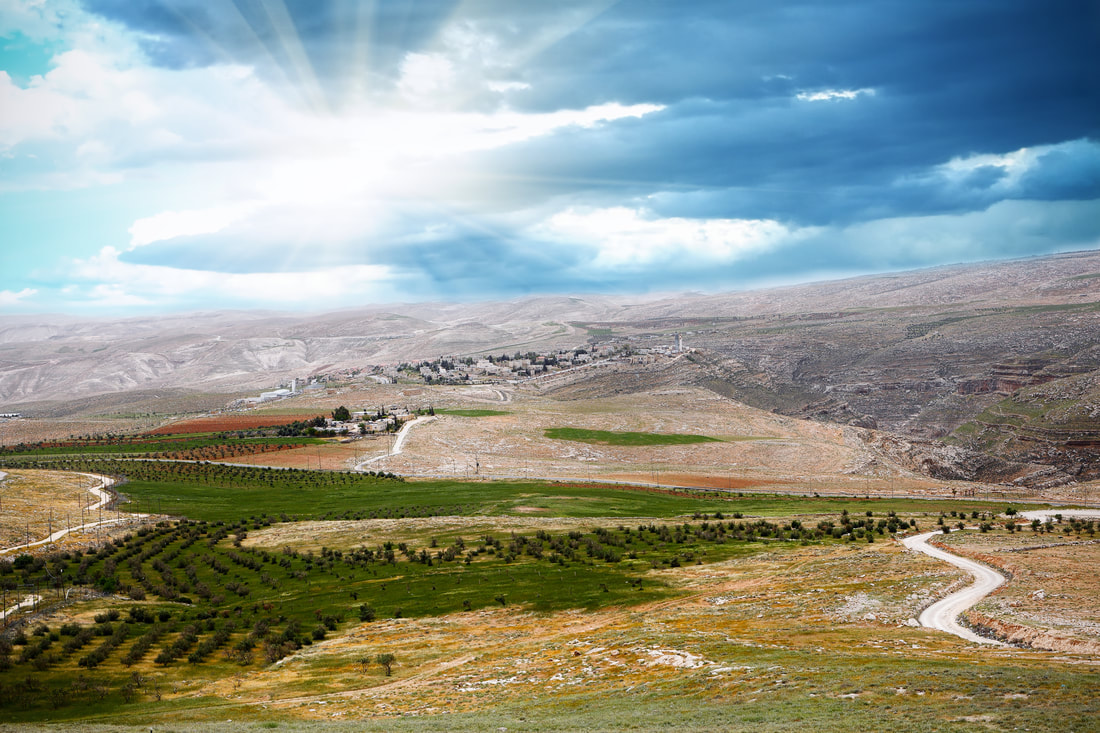|
Timothy W. Berrey is the director of Graduate Studies at BJMBC. Tracing the Land of Canaan in Genesis 1-24. We are so accustomed to seeing the expression "the Land of Canaan" in Scripture that we don’t think about its significance. The land of Canaan is the land that belonged to a person named Canaan. By Genesis 12, however, Canaan’s land is being deeded to another man by the name of Abram. What happened? It starts with Noah’s son, Ham, who evidences serious defects in his character (Gen. 9:22). From the way his action leads to a curse upon his son, Canaan, we infer that Ham passed down his immoral bent to Canaan. Ultimately, Canaan’s wicked character causes him to forfeit the rights to his land. God then promises Canaan’s land to Abram, a man who evidences his faith in God by leaving his homeland and family and journeying, sight unseen, to the land of Canaan. Once he arrives in the land, God says to him, “To your offspring I will give this land” (Gen. 12:7). Abram clings to God’s promise, which God confirms at various points in his life, and refuses to go back to the land of his origins. He evidences his faith in God’s promise in a number of ways. He lives in tents, rather than in the cities of Canaan, as he waits for God’s timetable to give him the land. He buries his wife Sarah in Canaan, rather than repatriating her to Ur of the Chaldees. Significantly, he refuses to leave the land of Canaan to find a wife for his heir, Isaac. His actions in Genesis 24 testify to his commitment to the divine plan for his life. He will not marry Isaac to a Canaanite woman but he will not leave Canaan, or allow Isaac to leave Canaan, in order to find a wife from his own relatives. He instead sends his servant. Abram is committed to staying in Canaan and making sure his family stays in Canaan, but he will not become amalgamated with the Canaanites. God’s giving Abraham the land of Canaan is not just about him and his immediate family. From the very beginning, God intends that Abraham become a blessing to all the families of the earth (Gen. 12:3). Canaan will be the place where Abraham’s descendants, to whom Yahweh had promised to be their God (Gen. 17:8), will live. The land of Canaan is where the Israelites, Abraham’s offspring, were to be a kingdom of priests (Exod. 19:6), radiating the knowledge of Yahweh, the one true God, to the ends of the earth. Canaan’s land would also become the place where God provided a substitute sacrifice for mankind. In Abraham’s greatest test, God instructs him to take his son Isaac to the land of Moriah and offer him there as a burnt offering. As Abraham prepares to kill his son, the Lord intervenes, stops the test, and instead provides a ram as a substitute for Isaac. As a result, Abraham names the place “Yahweh Will Provide” (Gen. 22:14). The next phrase in verse 14 clarifies the significance of this place name: “On the mountain of Yahweh, it shall be provided.” The mountain in Moriah on which Abraham offered Isaac would be called the Lord’s mountain, and on that mountain God would provide a substitute. Moriah is mentioned only one other time in the Bible. Solomon, 2 Chronicles 3:1 records, built the Lord’s temple in Jerusalem on Mount Moriah, the same place where some 1000 years earlier Abraham evidenced willingness to offer his son as a burnt offering. About 1000 years after Solomon built the Temple, God did not spare His Son but instead offered Him up for us all. And He sacrificed Him at Jerusalem, the Lord’s mountain, just as Genesis 22:14 had predicted. Jerusalem, of course, is in what was Canaan’s land. A land forfeited because of sin became the place where the penalty for sin was paid. Even in Canaan, we see how grace triumphs over human sin.
0 Comments
Leave a Reply. |
BJMBCReading, learning, growing. God calls us to be changed through His Word. At BJMBC, our goal is to speak truthfully and clearly about that Word, while we prepare a future generation of students to proclaim it. Archives
August 2020
Categories
All
|
|
Bob Jones Memorial Bible College, 2018
|
125 Matahimik Street, Barangay Central, Diliman, Quezon City, Philippines, 1100
|



 RSS Feed
RSS Feed